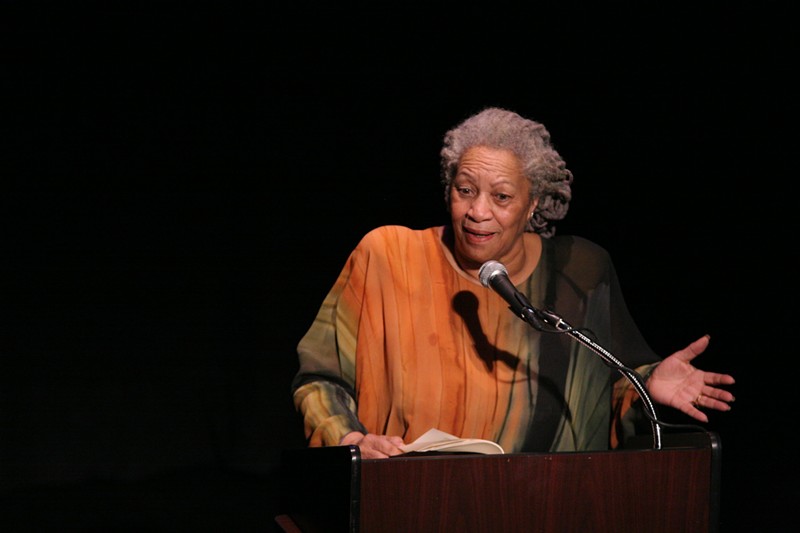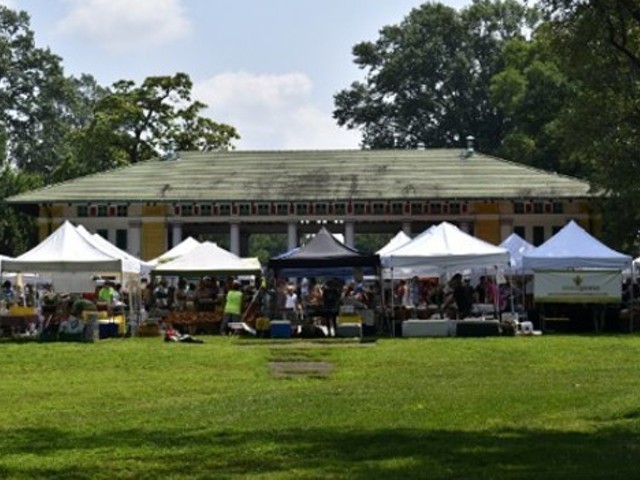Hartmann: The Book-Banning Wentzville Mob Gets Uglier
[
{
"name": "GPT - Leaderboard - Inline - Content",
"component": "41932919",
"insertPoint": "5th",
"startingPoint": "3",
"requiredCountToDisplay": "3",
"maxInsertions": 100
}
]
Psycho parents say the darnedest things. Consider those nice people carrying the torches and pitchforks in Wentzville.
Last fall, the Wentzville School District Board of Education banned from its libraries at least eight books deemed inappropriate by the contemporary standards of Trumpism. The movement appears to have been triggered by the triggered: parents hurling around words like “pornography” and “pedophilia” with neither cause nor context.
Wentzville earned the dubious distinction of becoming the first St. Louis-area school district to join the un-American revival of book banning across the country. Don’t expect it to be the last. Copycat rumblings have been heard from area districts in recent months.
Most prominent among the Wentzville banned books was The Bluest Eye, a signature 1970 work of Toni Morrison, who won both the Pulitzer and Nobel prizes. The American Library Association reports that it’s a favorite target of the banners.
The ACLU of Missouri filed suit against the district last month. “We’re not making any secret that they’re violating the First Amendment and they should know what will happen,” Legal Director Tony Rothert told me.
Indeed, within hours of the ACLU lawsuit, the Wentzville board voted 7-0 to reinstate The Bluest Eye. Maybe that was a coincidence. Or maybe the board members realized they have the reddest faces. But the story wasn’t over. Four of those banned books remain off the shelves. And the ACLU lawsuit goes forward seeking “prospective relief” to stop the district from its pattern and practice of wanton censorship.
Further, the Battle of Wentzville continues on Facebook and other social media. Certain culture warrior parents are upset about the situation, and want to doxx the parents of two students who had the audacity to have their names on the ACLU’s lawsuit. And whatever harm comes to those students, so be it. I’ve seen leaked snippets of these conversations, including from a private Facebook group of members based in St. Charles County.
It’s interesting reading what these zealots say when talking among themselves. I’ve edited their colloquies so as not to serve their doxxing purposes, and I’m omitting their screen names because they don’t deserve attention. But here’s a good one:
“[These two] are the parents of the plaintiffs on the ACLU lawsuit against WSD. It’s under initials of the kids, but is it them? They want to legally force that our minor children have access to pornography and pedophilia in our public schools that our tax dollars fund.”
Here’s another: “How do you know who these people are? Are they for sure liberal?”
Not all of the book-banning discussion is private. On “Katie Lyczak 4 Kids” — the campaign page for Lyczak’s candidacy for the Wentzville school board — she responded to a constituent’s question about how she would approach the subject:
“Banning is definitely the incorrect verbiage to use in this situation. If the books were truly banned they would be ‘illegal’ to possess as well. This is not the case. The books were removed from one venue, the public school libraries in the WSD. Students may still read the books. Students may still bring them to school without facing any repercussions.”
Interesting perspective. Banning a book from a public school library isn’t banning because the offending book is not treated as contraband. See, it’s not like heroin. A kid can still possess the book. He or she can still use it. How can that be banning?
I wouldn’t bet against Lyczak, running in a school board election in a conservative suburban county. Not these days. Perhaps books on logic were banned when she was in school.
This is America today.
It’s now new, of course. Historians often point to Uncle Tom’s Cabin — the classic anti-slavery tome published by Harriet Beecher Stowe in 1852 — as the first great example of book banning in America.
The Southern states banned Uncle Tom’s Cabin because it opposed slavery. I don’t know that angry parents and others accused Stowe of pornography or pedophilia, but the intent was the same as it is in Wentzville today: to protect innocents from absorbing immoral content.
It would be interesting to see how today’s Wentzville culture warriors would regard Uncle Tom’s Cabin if a think tank suggested that maybe it’s a little pornographic for getting so nasty about slavery. It might even qualify as pedophilia.
Some would argue that critical race theory suggests Blacks should not be slaves. Others would note that there’s “fine people on both sides of this issue.”
So, it’s not hard to see Uncle Tom’s Cabin getting the The Bluest Eye treatment. It’s not like the book banners read The Bluest Eye before demanding it be banned. Perhaps they should have read this piece from KSDK:
“We spoke with Karla Armbruster, an English professor at Webster University who teaches a seminar on Morrison’s books, earlier this month. She believes it is valuable to teenage readers.
“‘This is a very literary book. The style, the form are complex, experimental, even every sentence is like a poem,’ said Armbruster. ‘One of the things students learn with this book is how to read more difficult text, how to develop interpretive skills [and] how to appreciate ambiguity.’”
I’m not familiar with Armbruster’s work, but if she regularly uses phrases like “interpretive skills” and “appreciating ambiguity” — and applies them to the African American population — she almost certainly would stand accused of peddling critical race theory.
They might well ban her in Wentzville for that.
Ray Hartmann founded the Riverfront Times in 1977. Contact him at [email protected] or catch him on Donnybrook at 7 p.m. on Thursdays on the Nine Network and St. Louis In the Know With Ray Hartmann from 9 to 11 p.m. Monday thru Friday on KTRS (550 AM).






